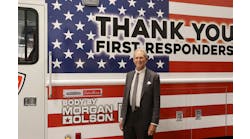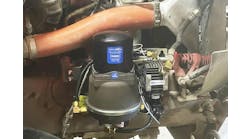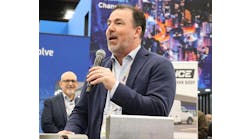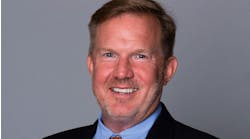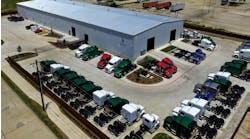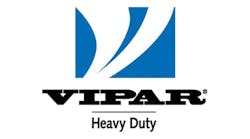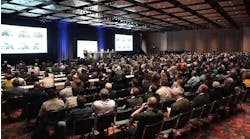As Sun Country Truck Equipment approaches its 20th anniversary in May, a second generation is preparing to lead the company for the next 20 years. Sweeping changes aren’t in the works, but company leadership past and future agree that a fresh perspective is required for continued success in an ever-evolving marketplace.
Since co-founders Tim Williams and Scott Bennett got together in 2000, Phoenix-based Sun Country has become one of the leading custom truck body manufacturers and equipment suppliers in Arizona and the Southwest.
Williams was working in an auto recycling business at the current Sun Country location, and he’d gotten to know Bennett, who worked for a nearby truck equipment company. Bennett had a background in welding and fabrication, and when the recycling business was sold, the two teamed up.
“I told Scott that I could sell stuff if he could make it,” Williams recalls.
Flash forward to today, and Tim’s son Derek is the Sun Country vice president (and he’s recently taken an ownership stake). Scott’s son Matt is the lead installer and heads the van and service body departments.
Derek sees the value in staying the course: Sun Country’s long-time focus on custom products and customer service generated $11 million in revenue last year as the company upfit some 600 work trucks, with another 300 to 400 van and light-duty pickup installations.
“If a customer can draw it on a napkin, we can build it for him,” Derek says, echoing Tim’s straightforward approach 20 years ago.
Of course, 20 years ago the business was built around “hand-written invoices and fax machines,” Tim recalls.
“It was a pretty loose shop. We didn’t really have any boundaries—we just dug in,” Tim says. “Some days I’d be answering the phone, doing quotes. Others I’d be crawling around underneath the vehicles. We were mostly just a fab shop. We didn’t even have a service body line.”
Still, Derek—who earned his business degree from Arizona State—would really like to get away from relying on quick sketches as a basis for the business. He speaks again and again of “process improvements.”
“I’d like to continue to focus on the custom work we’ve done the last 20 years,” Derek says. “There’s a lot of value there going forward. But I’d like to improve how we do that work, and how the end-product gets delivered to the customer.”
Among the items on his upgrades list, Derek points to adding a draftsman or engineer to the team to do the CAD work. That comes after a sometimes-difficult process of organizing the company’s two decades’ worth of drawings, photos and notes: Simply, the company shouldn’t have to rely on Tim’s experience and recollection of previous one-off designs.
Derek would also like the sales team to identify opportunities to extend the business in some of the niche markets Sun Country currently serves on a limited basis.
“I know there have been a lot of acquisitions of mom-and-pop businesses like ours, and that sort of customized work is one area where larger companies will be less likely to jump in,” he says. “And we’ve grown across the board, but we’ve been very successful doing more light-duty and van upfits. There can be opportunities to expand, both in the Phoenix area and in other markets.”
He credits GM Keith Ladd with seeing the opportunity in the van and light-duty upfits when he joined Sun Country five years ago.
The heavy-duty fab shop expertise also pays off in the fastest growing part of Sun Country’s business: While the pickups and vans are typically “cookie-cutter” installs, having the ability to modify manufactured equipment to suit a customer’s specific needs is a significant advantage, Derek notes.
But he doesn’t anticipate dipping the company toe in the lucrative—but highly competitive—consumer pickup modification market.
“There’s something to be said about sticking with what you’re good at,” Derek explains. “We’re good at the commercial side of things. [The consumer] is a different customer to deal with, with different expectations.”
Tim adds that Sun Country had in the past considered building trailers.
“They’re awfully similar [to truck bodies], but when you get right down to it that’s really a different business,” he says.
An expansion is in the works as well. Sun Country has acquired a building 45 minutes to the south in Casa Grande, where the major fabrication work will be done. The goal is to free up shop space in the main location for additional install work. As an added benefit, several fabricators currently commute from the area.
“What we’d like to do in the future is have maybe two or three technicians that do those more complex, in-depth upfits that take 50 to 60 hours,” Derek says. “And then we’ll have a team that does the quicker-moving flatbeds, cleanup dumps, things like that, that take 10 to 20 hours.”
The business
The Sun Country facility sits on 3 acres in an industrial area just across the Salt River from Phoenix Sky Harbor International Airport. Some 30,000 square feet of shop space is divided among several buildings on the property.
The staff averages between 25 and 30, currently including six installers; six people dedicated to the van department; five fabricators; two people in the paint shop; and a shop clean-up person. Sales, service, parts, and bookkeeping personnel make up the rest of the Sun Country team.
Because of the summertime heat in Phoenix, shop workers liked to start the day at 4 am, a practice that became year-round. Fabricators clock in for four 10-hours shifts.
The Sun Country product line runs the gamut, and from small to large: landscape and dump bodies; flatbed bodies; service bodies; municipal bodies; dry boxes; and hitches and accessories.
Landscape and construction companies have traditionally been Sun Country’s biggest customers, with service companies coming into the mix with the van and light-duty truck installations. Municipal work, secured through truck dealers, makes up about 25% of the business. Arizona mines are also typically good for a run of 20 to 30 trucks each year.
Challenges and changes
As with any business, there are changes that are planned for and changes that force new plans.
The shop recently has been reorganized—substantially. Following the departure of the operations manager last summer, Sun Country has given experienced employees supervisory responsibilities.
“With the number of very long-standing employees we have in the shop, we felt that we could have multiple working foremen to run the operation, as far as the day-to-day stuff goes,” Derek explains.
So last August Tim and Derek designated department heads for van and service upfits; for fabrication; for body installs; and for the paint shop. And those foremen have embraced their new responsibilities—and new accountability.
“We’ve had a lot of success with it,” Derek says. “We’ve found the number of errors and mistakes in each department has been greatly reduced now that we have someone out there full time, working side-by-side with the other guys in the department.”
Without a formal operations manager, Derek now handles the communication between management and the departments.
“I keep it pretty informal. I’ll walk around, meet with each team leader two or three times a week to go over specific production goals, improvement goals, that kind of thing,” he says. “I like to do it out on the shop floor—I feel like they’re more comfortable, more in tune to discuss things—instead of formal meetings up in the conference room.”
Shop processes improvements include an expanded use of jigs to properly position material during component fabrication. The company is also working more with vendors who can more efficiently pre-cut steel to size for some of the higher-volume products. The paint shop has been upgraded resulting in a substantial labor reduction. Additionally, Sun Country has implemented a “comprehensive” parts management program, so technicians have everything they need for the job on hand, rather than spending time tracking down parts.
“The bottom line,” Tim adds, “is we’re seeing easily $100,000 a year in savings.”
And those savings are returned in a new bonus program, based on the goals set for each department. These include quarterly production targets, billed hours versus actual hours, etc.
“I always like to have the department heads involved—not just dictate what direction we need to go—and then facilitate changes that way,” Derek says. “At the end of the day, you have to have the buy-in or you’re not really going to be successful.”
A side yard features a stack of STAHL service bodies (Sun Country is one of the largest STAHL distributors in the US), among other equipment.
“We keep a pretty substantial inventory,” Derek says. “Part of that is vendor lead times, but it all comes back to the customer service aspect of our business. It’s one of the key competitive advantages we have, getting the product put together and out the door quickly.”
A more rigorous quality control effort has reduced “comebacks” by 60% to 70%. Similarly, any problems are dealt with promptly—even if it means pulling someone away from a job—rather than letting a truck sit until the work can be done during a lull.
“It infuriates the customer to have to wait,” Tim says. “If we have to, we’ll make a phone call to the current customer and explain that their truck order is going to be delayed—that we had a good customer come in with a problem and we took care of it, just like we’re going to do for you.”
Recession and recovery
The 2008 economic downturn, as for basically the entire commercial vehicle equipment industry, was a serious challenge for Sun Country. Revenue plummeted, from more than $5 million in 2007 to $1.2 million. As orders fell, the number of employees slipped from 30 to eight. And the company had to be creative to keep those who remained.
“We were always profitable,” Tim emphasizes—although he notes that he didn’t take a salary while the business struggled. “The guys in the shop would show up for work, but they wouldn’t really know what the schedule was.
“If they had a neighbor’s car that they were doing the brakes on, they had the air and lights in the shop and they could work on it here. If a hitch came in, they’d jump on it and get it done for us.”
He also cites the Arizona Shared Work program, which allowed employees to receive partial unemployment benefits while keeping their jobs. He credits those who stayed, as well as those who returned after being laid off, for making the business the success it has become.
Revenue didn’t return to pre-Great Recession levels until 2014, however. But since then, Sun Country has taken advantage of the slow but steady economic recovery. Revenue was up 23% last year, largely on volume growth, Tim noted.
Looking ahead, Tim speaks with obvious satisfaction about Derek’s decision to join the company (although all five of Tim’s sons have worked in the business over the years).
Tim also credits Derek for getting more involved in various industry associations than Sun Country has been in the past, and for being “a lot more detail-oriented.”
“I see a good future, between Derek and the rest of the team,” Tim says. “We’re fortunate to have had a lot of dedicated employees, a really good team, doing the right thing for the customer without having a corporate mentality.
“Now we have a lot of younger guys that are 30 and under that are just picking it up. I’m really impressed.”
Derek’s growth goals are ambitious, but the foundation is already in place.
“Our big competitive advantage will always be customer service and hustle,” Derek says. “Getting the product pushed out the door quicker than the competition and always doing the best to take care of the customer.
“The simple things add up to big results.”


